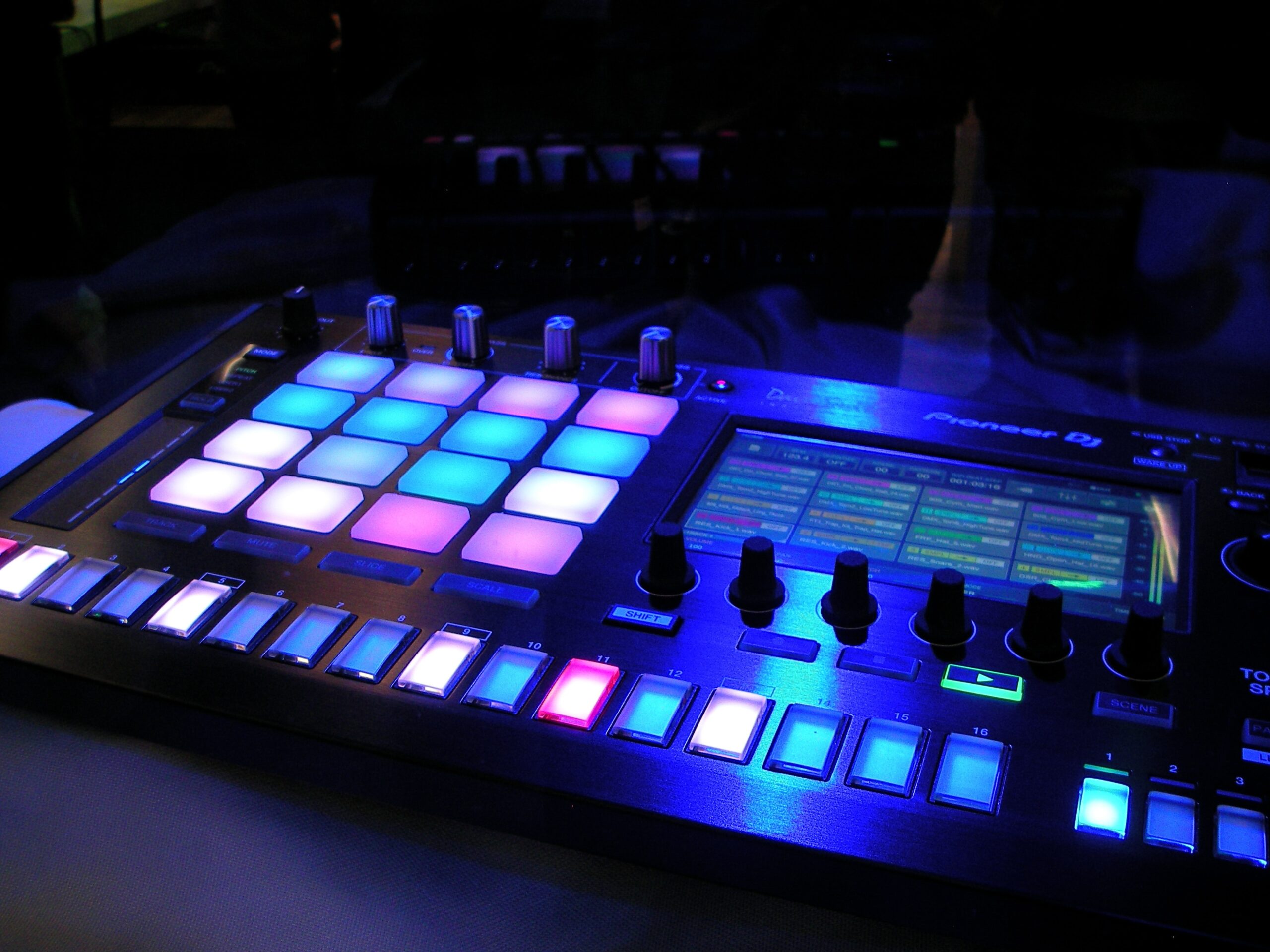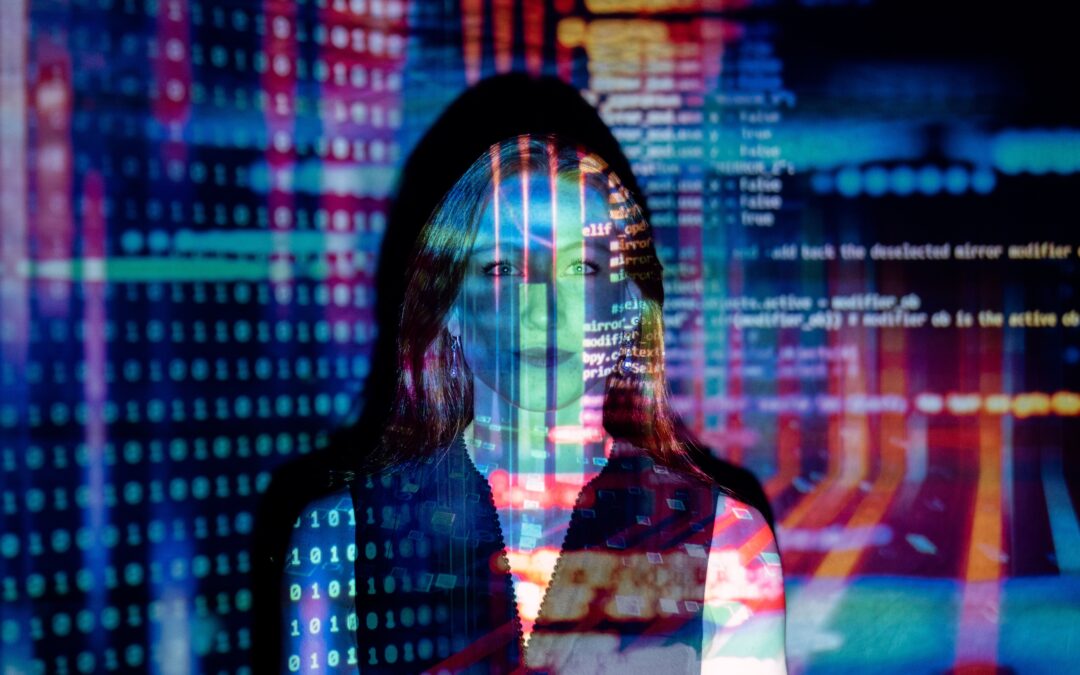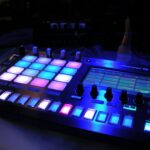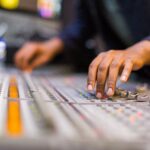Introduction
The music industry has always been in a constant state of evolution, driven by advancements in technology and changes in consumer behavior.
In recent years, one of the most groundbreaking technological innovations that has left an indelible mark on the industry is Artificial Intelligence (AI).
AI’s ability to process and analyze vast amounts of data, make predictions, and mimic human-like behaviors is revolutionizing various aspects of music creation, distribution, and consumption.
In this blog post, we will delve into the multifaceted ways in which AI is reshaping the landscape of the music industry, with insights and examples from both popular music and the hip-hop genre.
Evolution of Music Production
The journey of music production from analog to digital was a game-changer, enabling artists to harness new possibilities. AI is now further propelling this evolution, introducing a realm of creative potential that was once unfathomable.
While traditional music production involved a meticulous process of recording, editing, and mixing, AI-driven tools are now capable of generating entire compositions.
For instance, OpenAI’s MuseNet AI can produce compositions in various styles, from classical to modern, demonstrating the extent to which AI can mimic artistic creation.
AI in Music Composition
AI’s entry into music composition is both fascinating and controversial. Platforms like Amper Music employ AI algorithms to analyze vast musical databases and generate original compositions. However, this has sparked debates about the authenticity of AI-generated music.
Notably, in 2019, Taryn Southern released an AI-composed album titled “I AM AI,” demonstrating that AI can be used as a collaborative tool by artists.
This album merged human creativity with AI-generated melodies, illustrating a harmonious coexistence between technology and human ingenuity.
Personalized Music Recommendations
In the era of music streaming, AI’s impact is most evident in personalized music recommendations.
Streaming platforms like Spotify and Apple Music leverage AI to analyze users’ listening habits, generating curated playlists that align with individual preferences.
This ensures a more immersive and tailored music experience. For instance, Spotify’s “Discover Weekly” playlist employs AI algorithms to suggest songs based on users’ listening history, introducing them to new artists and tracks they might enjoy.
Music Curation and Playlists
AI’s role in music curation is expanding beyond recommendations. Platforms are utilizing AI to create playlists based on mood, activity, and genre, enhancing user engagement.
For instance, hip-hop enthusiasts can enjoy AI-generated playlists that capture the genre’s dynamic range – from laid-back beats to high-energy tracks.
While algorithms play a pivotal role, human expertise remains essential to strike the right balance between algorithmic curation and artistic sensibility.
Enhanced Music Production
AI is not confined to composition; it’s also enhancing music production. AI-powered tools can analyze audio data and enhance sound quality by reducing background noise, optimizing mixing, and even suggesting arrangements.
For hip-hop producers, this means refining beats and instrumental tracks effortlessly. LANDR, an AI-based mastering platform, automates the mastering process, democratizing access to professional sound quality for independent artists.

Copyright and Royalties
AI’s involvement in music raises questions about copyright and royalties.
In 2020, Warner Music signed a deal with AI startup Endel, which produces AI-generated tracks for background music. The agreement raised discussions about how royalties should be distributed for AI-composed content.
This issue is particularly relevant in hip-hop, where samples and collaborations are common. Determining rightful ownership and ensuring fair compensation remain complex challenges.
Music Copyright Infringement Detection
AI is a powerful tool for detecting copyright infringement in the digital music space. Platforms use AI algorithms to scan and compare uploaded content against copyrighted material.
YouTube’s Content ID system, for instance, automatically identifies and manages copyrighted content within user uploads. This technology safeguards artists’ rights, especially in hip-hop, where unauthorized sampling is a contentious issue.
AI and Music Journalism
The realm of music journalism is also undergoing a transformation with AI. AI-driven platforms analyze music consumption patterns and trends, generating data-driven articles and insights. Hip-hop, as a genre deeply intertwined with cultural shifts, can be explored through data analysis to understand its impact on society.
However, maintaining the human touch in music journalism is vital to capturing the nuances and emotions that data alone might miss.
The marriage of AI and music journalism opens up an intriguing realm of possibilities. AI-powered platforms can analyze vast amounts of data to uncover trends, patterns, and insights in music consumption.
In the context of hip-hop, a genre deeply entwined with cultural shifts and societal commentary, AI’s data-driven analysis offers a unique lens through which to explore its impact on society.
Imagine an AI-powered music journalism platform delving into the evolution of hip-hop lyrics over the decades, tracing themes of empowerment, social justice, and identity.
Through sentiment analysis, AI could illuminate how certain artists’ lyrics resonate differently across different demographics and regions. This kind of analysis could shed light on the genre’s socio-cultural impact in ways that traditional journalism might overlook.
However, it’s crucial to recognize that while data-driven insights provide valuable perspectives, they can’t capture the entirety of the human experience within music. Hip-hop thrives on the raw emotions, lived experiences, and personal narratives that artists bring to their craft.
AI’s role in music journalism should complement, not replace, the nuanced storytelling that human journalists offer, allowing for a balanced and holistic representation of the genre’s impact.
The partnership between AI and music journalism, particularly in the context of hip-hop, is a collaboration between the analytical and the emotive. AI can unearth trends and correlations, but it’s the human touch that contextualizes these findings within the broader cultural tapestry.
The fusion of data-driven insights and human storytelling provides a multifaceted exploration of hip-hop’s influence on society, offering new narratives and fresh perspectives to both fans and scholars alike.
Virtual Artists and Performers
The emergence of virtual AI-powered artists marks a groundbreaking shift in the music industry’s landscape. These virtual entities challenge conventional notions of identity, performance, and fandom.
In the realm of hip-hop, where artistic expression often intersects with personal experiences and cultural narratives, the rise of virtual performers sparks intriguing conversations about authenticity and representation.
Virtual artists, such as Hatsune Miku, Lil Miquela, and AI Luka, have garnered substantial followings, blurring the lines between the real and the virtual. Hatsune Miku, a holographic pop star, has performed sold-out concerts, captivating audiences worldwide with her ethereal presence.
In hip-hop, the virtual artist Lil Miquela made waves by collaborating with real-world artists, releasing music, and even participating in social activism.
These virtual performers tap into a new dimension of creativity. They transcend the limitations of physicality, allowing artists to experiment with visual aesthetics, alter egos, and narratives that might not be feasible in the physical realm.
This is particularly relevant in hip-hop, a genre that often weaves intricate stories and personas into the music. Virtual artists provide a canvas for hip-hop artists to craft personas that challenge societal norms and explore uncharted territories.
However, the rise of virtual performers also sparks discussions about the commodification of authenticity. The notion of an AI-generated artist raising real emotions and connecting with fans poses ethical questions. Can AI-generated art evoke the same emotional resonance as human-generated content?
Are virtual artists taking up space that real artists could occupy? These questions challenge us to reconsider the essence of artistic connection and expression.
The hip-hop community, known for its outspokenness and emphasis on individuality, engages with these questions in unique ways. Collaborations between virtual and human hip-hop artists are on the rise, creating a fascinating dynamic.
Virtual artists can bring innovative sonic elements and visual aesthetics to the genre, while human artists contribute the authenticity and lived experiences that are vital to hip-hop’s storytelling.
Check out: How Music Festivals Impact the Local Economy
Hip-Hop’s Technological Journey
The hip-hop genre itself has a unique relationship with technology.
From the early days of turntablism and sampling to today’s AI-driven innovations, hip-hop has always embraced technology as a means of artistic expression.
Grandmaster Flash’s pioneering use of turntables and mixers laid the foundation for DJ culture, while sampling became a cornerstone of hip-hop production.
AI’s ability to replicate and manipulate sounds aligns seamlessly with hip-hop’s ethos of innovation, making it a genre that’s well-suited to embrace AI-powered tools.
A.I in Lyricism and Rhyming
AI’s impact isn’t limited to music production; it extends to the realm of lyricism. AI algorithms can analyze vast databases of lyrics, identifying patterns and rhyming schemes.
While AI-generated lyrics might lack the nuanced storytelling of human-written verses, they can be used as a source of inspiration.
Artists can harness AI’s analysis of hip-hop’s extensive lyric library to explore new ways of crafting verses and rhymes that honor the genre’s rich tradition.
AI-Powered Sampling and Remixing
Sampling has been a fundamental element of hip-hop, allowing artists to repurpose existing tracks and create something entirely new.
AI can revolutionize this process by offering tools to generate new samples and remixes from existing tracks. Artists can explore fresh sonic landscapes, combining AI-generated elements with their own artistic vision.
This dynamic interaction between AI-generated content and human creativity enriches the genre’s evolutionary journey.
Democratizing Music Production
AI has the potential to democratize music production, particularly in genres like hip-hop, where barriers to entry have historically been lower.
Aspiring hip-hop artists can leverage AI tools to create professional-grade beats and compositions without the need for extensive technical knowledge.
This accessibility fosters a more diverse range of voices and perspectives within the genre, enriching hip-hop’s cultural impact.
Navigating Cultural Authenticity
Hip-hop is deeply rooted in cultural identity, and discussions about AI’s role in the genre often center around authenticity.
AI-generated tracks and virtual artists might raise concerns about cultural appropriation and misrepresentation.
It’s crucial to approach AI applications in hip-hop with sensitivity, ensuring that the technology respects the genre’s cultural origins and contributes positively to its evolution.
The Role of Human Collaboration
While AI’s potential is immense, human collaboration remains integral to hip-hop’s essence. The genre thrives on the interplay of diverse voices, experiences, and perspectives.
AI can augment this collaboration by facilitating remote interactions, suggesting creative directions, and even assisting in cross-genre collaborations.
However, the irreplaceable authenticity of human storytelling and lived experiences remains at the heart of hip-hop’s power.
Ethical Considerations
As AI becomes more deeply integrated into the music industry, ethical considerations come to the forefront.
AI-generated content blurs the lines of authorship and authenticity, leading to debates about rightful ownership and creative attribution.
In hip-hop, where storytelling is paramount, acknowledging the contributions of artists—both human and AI—is essential for ethical and cultural reasons.
Embracing the Unpredictable Future
The fusion of AI and music, particularly in the context of hip-hop, is an exciting journey into uncharted territory. The genre’s history of innovation and resilience positions it well to navigate this evolving landscape.
As AI continues to evolve, hip-hop artists have the opportunity to push boundaries, challenge norms, and redefine what’s possible within the genre.
Conclusion
The convergence of AI and the music industry, with a spotlight on hip-hop, paints a picture of a future where technology amplifies human creativity rather than overshadowing it.
Hip-hop’s journey, from turntables to AI-driven beats, exemplifies how innovation has always been a driving force.
As AI and music walk hand in hand, the key lies in fostering a harmonious relationship that enhances the artistic process expands accessibility, and celebrates the cultural richness that defines hip-hop.
In the end, it’s not about AI replacing the human touch; it’s about AI and humans creating a new symphony of possibilities together.






